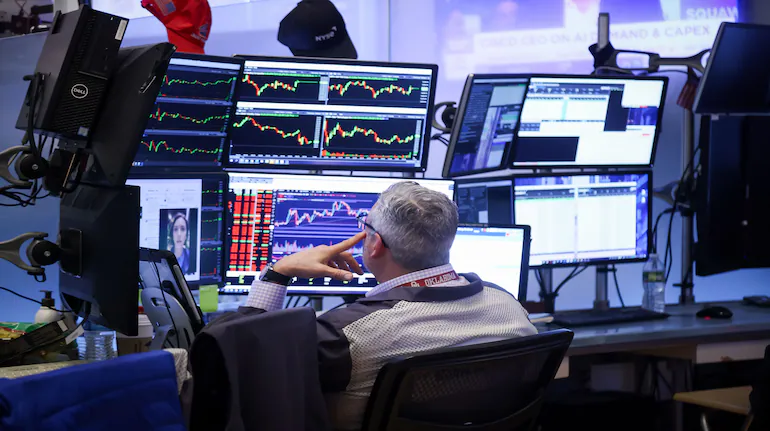China’s Stock Rally Faces Pressure as U.S.-China Trade Tensions Resurface
China’s Stock Rally Faces Pressure as U.S.-China Trade Tensions Resurface
By
Leah Rosenfeld
Last updated:
October 13, 2025
First Published:
November 30, 2025

Photo: Moneycontrol
Beijing — China’s recent stock market rally is under scrutiny as fresh U.S.-China trade tensions threaten to derail months of investor optimism. After a period of relative calm, Washington’s renewed warnings over China’s rare earth export controls have revived concerns about a potential tit-for-tat trade escalation.
Mainland China’s benchmark CSI 300 index, tracking leading stocks in Shanghai and Shenzhen, surged nearly 20% from the start of 2025 through October 9, while Hong Kong’s Hang Seng Index climbed around 33% during the same period. Gains were fueled by expectations of government stimulus and a notable inflow of foreign capital into Chinese equities.
However, the rally’s sustainability is now in question. Both the CSI 300 and Hang Seng dropped more than 2% on Monday as geopolitical risks returned to the forefront. Market participants had priced in a potential U.S.-China summit, possibly easing tensions, but those hopes have faded following Washington’s tariff threats, including a proposal of 100% tariffs on certain Chinese imports.
Analyst Perspectives on Market Risks
Sean Darby, chief global strategist at Mizuho Securities, warned that markets may face a “much more difficult couple of weeks” as investors confront renewed uncertainty. “Global equities were perfectly positioned for growth, but a sudden re-emergence of trade conflict could trigger volatility,” he said.
Ed Yardeni, president of Yardeni Research, highlighted the broader stakes, noting that if neither side compromises, the U.S. and Chinese economies could push the global economy toward a deep recession, or even a depression.
Goldman Sachs also flagged the potential risks, noting that while the most likely scenario remains an extension of the May tariff truce, there is still a real chance that both nations could revert to the triple-digit tariffs seen earlier this year. Strategists emphasized that heightened expectations and threatened policy responses raise the probability of market setbacks.
Overbought Conditions and Vulnerable Stocks
Chinese equities had already been “very overbought,” with gains concentrated in a handful of mega-cap stocks such as Tencent, Alibaba, and NetEase. Arthur Budaghyan, chief emerging markets and China strategist at BCA Research, warned that these conditions leave offshore Chinese stocks particularly vulnerable to a pullback.
Global Market Implications
The re-emergence of trade tensions comes at a critical moment for global markets. The MSCI World Index, which tracks over 1,600 large- and mid-cap companies across 23 developed markets, had risen almost 17% year-to-date prior to renewed tariff concerns. Analysts caution that the renewed conflict could cause equities to trade sideways or experience further declines, particularly in sectors heavily tied to technology and high-end manufacturing.
Investors will be watching closely in the coming weeks for signals from both Washington and Beijing. Any escalation or lack of compromise could introduce significant volatility in global financial markets and undermine the strong rally Chinese stocks have seen in 2025.
Popular articles
Subscribe to unlock premium content
Snow, Silence, and Splendor

The $60 Million Market for Ultra-Exclusive Executive Pop-Up Experiences

Conquering the Poles in Absolute Luxury

Snow, Silence, and Splendor

The $60 Million Market for Ultra-Exclusive Executive Pop-Up Experiences

Snow, Silence, and Splendor









